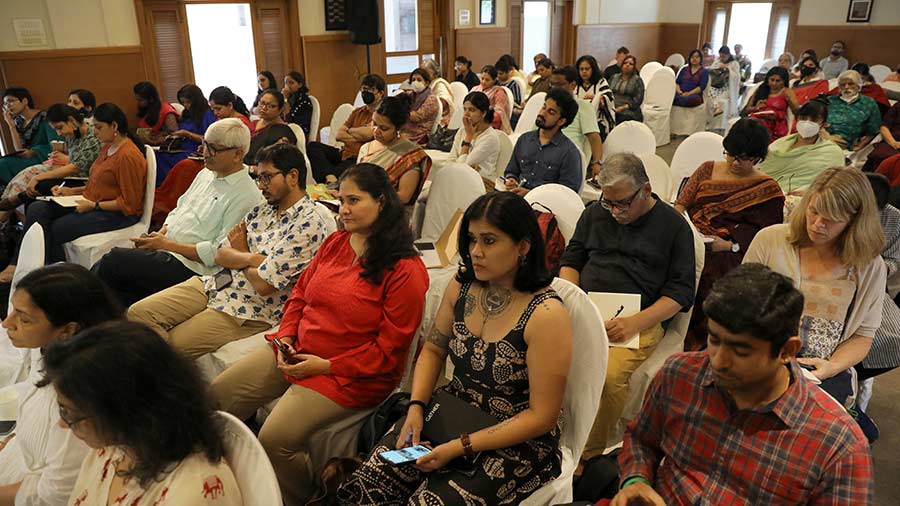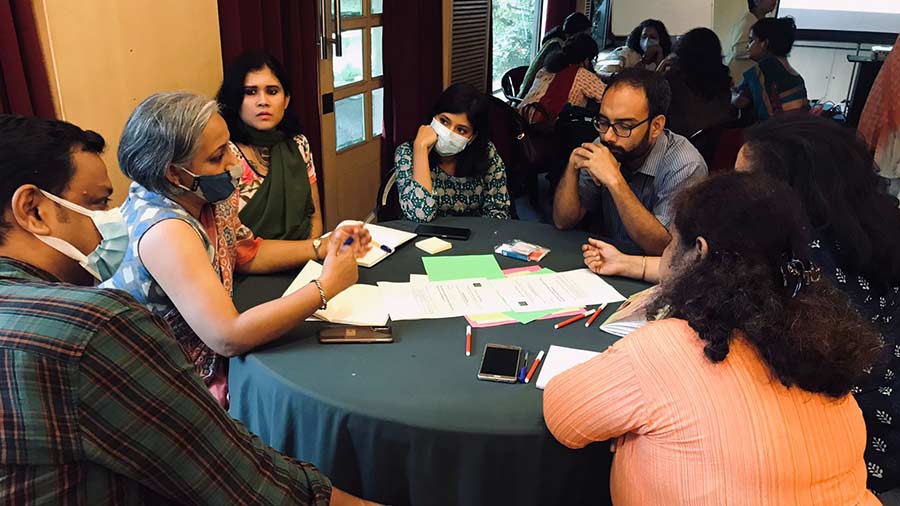School teachers from Kolkata, Chennai, Bangalore, Delhi, Coimbatore, Ludhiana, Pune and Hyderabad exchanged notes on how to approach the curriculums and subjects in a liberal and open-minded way at the micro level and engage students, allowing them to form their own perceptions.
The sixth edition of the History for Peace Conference, conceptualised in 2015, was conducted by the Seagull Foundation for the Arts at Tollygunge Club, Kolkata, from August 4-6.
Over 70 school teachers took part in the national conference that had ‘The Idea of Democracy’ as its theme. The two-way dialogue between the speakers and the participants attempted to bring democracy in theory and practicality to classrooms.
“The concept of the conference revolves around what we feel needs to be spoken about with teachers within classrooms,’’ said Meena Megha Malhotra, director, History for Peace and Peaceworks, The Seagull Foundation for the Arts.
The conference started off with a keynote address by Apporvanand Jha, professor, department of Hindi, University of Delhi. Romila Thapar, historian and Emeritus professor, Jawaharlal Nehru University, looked into the pre-modern era and theories of Indian history. Sudipta Sen, professor, history and West Asia/ South Asia Studies, University of California, highlighted how democratic values reflect not only through intangible principles but also through tangible monuments and objects.
Sundar Sarukkai, founder, Barefoot Philosophers, drew from his latest book The Social Life of Democracy and spoke about how democracy is about society and people more than a form of government.
Joyeeta Dasgupta, principal, Techno India Public School, Ariadaha, attended the conference with her colleagues. ‘’Democratic systems don’t just exist in lesson plans or in classroom discussion. To truly understand democracy, one must also have such a system working in the school. This is one major takeaway. So, I’m thinking whether our assessments are democratic. Democracy was largely a concept that we would teach in the classroom but not live it in the school and if that is not there then I don’t think the lesson goes much beyond than just appearing for an exam. It is also time that in the classroom we don’t just teach children theory but also teach the students to participate in the citizenry process,” she said.
The second day of the three-day conference took off with writer Krishna Kumar speaking on how children are affected by the pillars of democracy. Anurag Bhaskar, assistant professor, Jindal Global Law School, Sonipat, highlighted how the marginalised were affected by the freedom struggle and what democracy means to them.
This was followed by T.M. Krishna, musician, whose ideas of culture, diversity and their relationship with democracy enthralled the audience.
The final day of the conference had Arvind Narrain, visiting faculty, National Law School and Azim Premji University, delve into the third pillar of the Indian democracy — law and justice.

The audience at the conference Arijit Sen / My Kolkata
On all three days, the participants were divided into smaller groups as they attended one of the three specially curated workshops.
Juraj Varga, chairman, Centre for Education and Innovations, Slovakia, and board member, EuroClio, conducted a workshop on ‘Pedagogy for Democratic Culture’, drawing from the European concepts of democracy and exploring the multi-perspectives of the concept.
Shahnaaz Khan, teacher, Political Science, Shiv Nadar School, Noida, engaged participants in a workshop titled ‘Engaging the Invisible’. Pathway School, Noida, teachers Shivangi Jaiswal and Smita Bhattacharya put together a workshop on ‘Teaching Democracy: Some Pedagogical experiments in and out of classrooms’ that took a look at teaching methods that might aid the students understanding of concepts as well as nurture their grey cells.
“The History for Peace resources have been developed by us over the years and are available for free download on our website. The target audience is teachers, so any teacher can access it. It’s not just restricted to people who have come to the conference,” Malhotra said.
